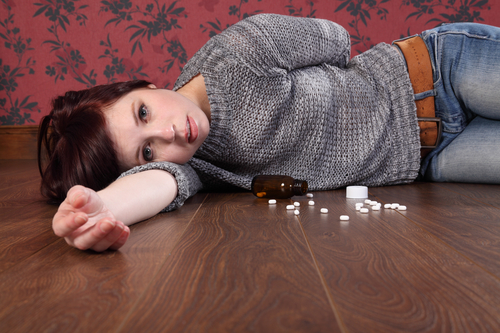Preventing Prescription Abuse Amongst Teenagers
In this day and age, it can be scary being a parent. The opioid epidemic is leaving many families broken by taking thousands of lives each year. And, it just seems to keep getting worse. So, how can parents protect their children from this epidemic? Fortunately, there are a few things that parents of teenagers can do to prevent prescription abuse. If you’re a parent of a teenager, educate yourself on the dangers of teen prescription abuse so that you’ll know what to do to protect your loved ones.
Statistics on Teenage Prescription Abuse in America
Unfortunately, teenagers are one of the most likely groups to abuse prescription medications. In fact, according to statistics recorded by the National Institute on Drug Abuse, the only age group of individuals who abuse prescriptions more are 18-25-year-olds. The same report states that three percent of American teenagers, ages 12-17, used prescriptions in the last thirty days for non-medical purposes. Additionally, a study performed by the Partnership for Drug-Free Kids states that 27% of teenagers believe that prescription medication is safer to take than illicit street drugs. And, 33% of teenagers believe it’s acceptable to take a prescription medication without a prescription for a doctor for a self-diagnosed issue like illness or injury. When looking at the statistics for teenage prescription abuse and what teenagers believe about prescriptions, it’s evident that not only our teenagers need more information on the subject, but parents too.
The Dangers of Prescription Medication and Teenage Abuse
The fact that many teenagers don’t understand the dangers of prescription medications is disheartening. Without knowledge and education on the dangers of prescription medications, the epidemic ravaging our nation’s population won’t subside. The truth is that many of the deaths attributed to the opioid epidemic are foreshadowed by prescription abuse. What starts as a single bottle of prescriptions, misuse of a medication, or even taking a pill given by someone else often leads to teenagers developing an addiction.
Prescription medications used in the management for pain are most often opiates. These drugs are synthetically developed to mirror the chemical components of opium. So, prescription medications which many teens believe are less addictive than street drugs are actually just as potent as black-market produced drugs like heroin. Without doctor guidance and education on these drugs, individuals can quickly become physically dependent on prescription medications. That means if a teenager misuses one bottle of prescription opiates, they’re at risk for experiencing withdrawal symptoms as soon as the drug is no longer administered. And, even worse, developing a lifestyle which incorporates addictive behaviors.
So, What Can Parents Do About Prescription Abuse Amongst Teenagers?
With the alarming statistics of teenagers who are unaware of the problem with prescription drugs and also the growing number of teens who do abuse these drugs, parents need to take action. Fortunately, as a parent, there are a few things that you can do to help your teenager steer clear of prescription abuse. These methods include:
Start the Conversation: As a parent, it’s your job to make sure that your children understand the dangers of opiates. Talk to your kids about which prescription medications are potent and can lead to an addiction. Also, make sure they know the difference between a prescription medication and an over-the-counter medication. This way, if they are to ever take medication without your supervision, they’ll be able to determine whether a medication is dangerous or not.
If your Child has a Prescription: Some children need to take medications which may be a risk for addiction to other children. These medications include those given for ADD, ADHD, and other mental health diagnoses. If your child has a prescription, set strict limitations and scheduling. And, be sure to tell your child about the dangers of skipping medication, administering medication the right time, and never giving medication to others.
Check your Medication: Often, teens who do not have a prescription can still develop an addiction by stealing medications. So, if you have a medicine cabinet which holds prescription opiates, monitor their number. This way, you’ll be sure to recognize if your teenager has gotten to them. Also, only keep prescription medications around that you are still using and still have a prescription for. If you have leftover or expired medications, properly dispose of them so that there is no temptation for your teenager to steal them.







